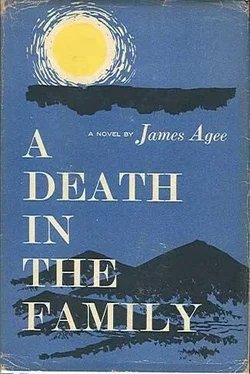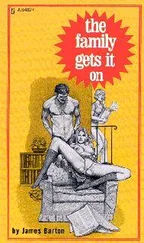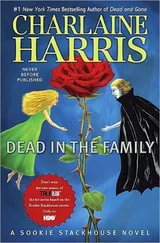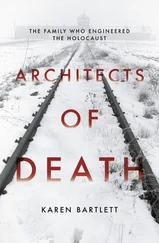NNHhhh; with a sobbing groan he struck his temple against the side of the house so violently that he could scarcely keep his feet, flung the bottle as far from him as he was able. "Oh, God! God! God! God!" he moaned, the tears itching on his cheeks. Fool! Fool! Fool! Why hadn't he made sure before he left the office? There couldn't have been more than a half a dram left.
He dabbed at his head with his handkerchief and stole leaning into the path of the lamplight. Blood, all right. He felt sick at his stomach. He dabbed again. Not much. He dabbed again; again. Not running, anyhow. He took a deep breath and went back into the room.
"Stumbled," he said. "Tain't nothin."
But even so, Sally came over, and his mother came over, and they both looked carefully, pretending that it was perfectly natural to stumble in a flat clay dooryard, and when they agreed that it was a mean lump but needed no further attention, he felt, suddenly, sad, and as little as a child, and he wished he were.
His rage and despair and the shock of the blow had so quieted and sobered him that now he was beyond even self-hatred. He felt gentle and clear. The sadness grew and became all but insupportable, and for the first time that evening, one of the few times id his life, he began to see things more or less as they were. Yes, over on that bed beyond the carefully shaded lamp, moaning occasionally, his breathing so shaken and irregular that it was as if sorrow disordered it rather than death, his father, his own father, was indeed coming near his last hour; and his mother, his own mother, sat there as quiet and patient, and so strong. There was not likely anyone in the world enough stronger that she could find comforting him. And he? Yes, he was here, for what little good that was, and he was the only son who was here. But there was no special virtue in that; he was the only son who lived near enough at hand. And he lived so near at hand because he had no courage, no intelligence, no energy, no independence. That was really it: no independence. He always needed to be near. He always needed to feel their support, their company, very near him. He always lived almost from day to day in the hope that by staying near, by always being on hand if he was needed, by always showing how much he loved them, he might at last be sure he had won their approval, their respect. He did not believe, he couldn't remember, one sober breath he had ever drawn, that he had drawn as if in his own right, feeling, I don't care what anybody thinks of me, this is myself and this is how I do it. Everything he did, every tone his voice took, was controlled by his idea of what would make the best impression on others. He was worse a slave to that, to his dread for other people's opinion of him, than any nigger had ever been a slave. And his meanness and recklessness when he was drunk enough, he knew that was no good, no good at all. It wasn't even real. It was just the way he wished he was, and it wasn't even that, for what he wished was not to be reckless, but brave, a very different thing, and not to be mean but proud, a different thing too. And what was the worst of it? Why, the worst of it was, that once in a great while he could see himself for what he really was, and almost believe that now that he saw himself so clearly, he could change, all it took was clearness of head, and patience, and courage; and at the same time he had to know that nothing that was in him to do about it could ever be done; that he would never change, except for the worse; that he had no kind of clearness of head, or patience, or courage, that would last beyond the little it took (and even that was enough to make him shiver all over), to just be able, once in ever so long a time, to sit and look at himself for what he really was. He was just weak: he saw that, clear enough. Just no good. He saw that. Just incomplete some way, like a chicken that comes out of the shell with a wry neck and grows on up like that. Like his own poor little Jim-Wilson, that already showed the weakness, with his poor little washed-out eyes, his clinging to Sally, his terror of his father when his father was drunk or even teased him, his readiness to cry. I ought not ever to have fathered children, Ralph thought. I ought not ever to have been born.
And looking at himself now, he neither despised himself nor felt pity for himself, nor blamed others for whatever they might feel about him. He knew that they probably didn't think the incredibly mean, contemptuous things of him that he was apt to imagine they did. He knew that he couldn't ever really know what they thought, that his extreme quickness to think that he knew was just another of his dreams. He was sure, though, that whatever they might think, it couldn't be very good, because there wasn't any very good thing to think of. But he felt that whatever they thought, they were just, as he was almost never just. He knew he was wrong about his mother. He had no doubt whatever, just now, that she really did love him, had never stopped loving him, and never would. He knew even that she was especially gentle to him, that she loved him in a way she loved nobody else. And he knew why he so often felt that she did not really love him. It was because she was so sorry for him, and because she had never had and never possibly could have, any respect for him. And it was respect he needed, infinitely more than love. Just not to haft to worry about whether people respect you. Not ever to have to feel that people are being nice to you because they are sorry for you, or afraid of you. He looked at Sally. Poor girl. Afraid of me. That's Sally. And it is all my own fault. Every bit mine. And I hate her for wanting other men, when I know that unfaithfulness never once came into her head, and when I'm the worst tail-chaser in LaFollette and half of the town knows it, and Sally knows it too, and is too gentle-hearted and too scared ever to reproach me with it. And sure I ought to be able to do something about that, at least about that. Any man could. Only I'm no man. So how can I expect that people can ever look up to me, or at least not look down on me? People are fair to me and more than fair. More than fair, if ever they knew me for what I really am.
And here tonight it comes like a test, like a trial, one of the times in a man's life when he is needed, and can be some good, just by being a man. But I'm not a man. I'm a baby. Ralph is the baby. Ralph is the baby.
Hannah Lynch decided, that day, that she would go shopping and that if Rufus wanted to go, she would like to take him with her. She telephoned Rufus' mother to ask whether she had other plans for Rufus that would interfere, and Mary said no; she asked whether so far as Mary knew, Rufus had planned to do anything else, and Mary, a little surprised, said no, not as far as she knew, and whether he had or not, she was sure he would be glad to go shopping with her. Hannah, in a flicker of anger, was tempted to tell her not to make up children's minds for them, but held onto herself and said, instead, well, we'll see, and that she would be up by the time he came back from school. Mary urgently replied that she mustn't come up-much as she would like to see her, of course-but that Rufus would make the trip instead. Hannah, deciding not to make an issue of it, said very well, she would be waiting, but he wasn't to come unless he really wanted to. Mary said warmly that of course he would want to and Hannah again replied, more coolly, "We'll see; it's no matter"; and, getting off the subject, asked, "Have you had any message from Jay?"
For Mary had telephoned her father, that morning, to explain why Jay could not be at the office. "No," Mary said, with slight defensiveness, for she felt somehow that criticism might be involved; and hadn't expected to unless, of course…
"Of course," Hannah replied quickly (for she had intended no criticism), "so no doubt we needn't worry."
Читать дальше












